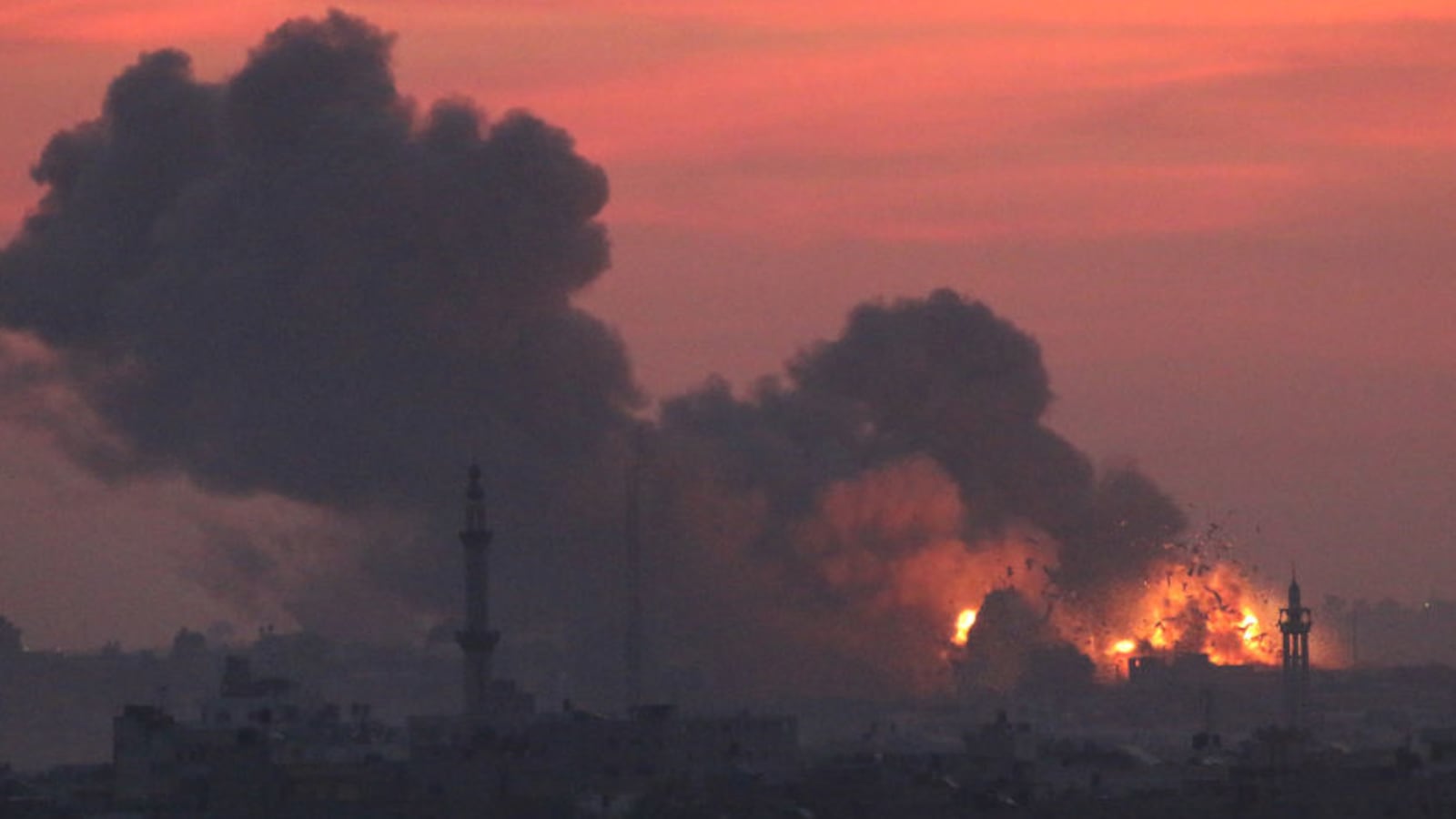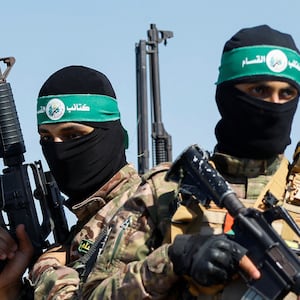A nightmarish situation is unfolding in Gaza on Wednesday with power supplies running out, neighborhoods being razed to the ground, and hospitals stretched to the breaking point as Israel responds to the unprecedented attack launched by Hamas militants over the weekend.
The enclosed territory is currently under siege and relentless bombardment after Israeli Prime Minister Benjamin Netanyahu declared war on Saturday, promising to deliver a more extreme retaliation against Hamas than anything seen before. After five days of strikes against targets in Gaza, the situation is only likely to deteriorate further as Israel prepares to make a possible ground invasion.
Clashes along Israel’s border with Lebanon have raised alarm in recent hours that the conflict may extend beyond war with just Hamas. Israeli aircraft hit targets in southern Lebanon Wednesday after Hezbollah fired anti-tank missiles at Israeli Defence Forces, the Israel Defence Forces (IDF) said.
Already, confusion and doubt about the direction of attacks and veracity of reported attacks appears to have settled in northern Israel. The IDF first said Wednesday it had received a report of suspected “infiltration from Lebanon into Israeli air space,” issuing “hostile aircraft intrusion” alert in hundreds of localities, according to alerts viewed on the Home Front Command web site. “All civilians in the areas where sirens were sounded are asked to enter shelters and stay in them until further notice,” the IDF said in a statement.
Later Wednesday, the IDF chief spokesperson said that there was no suspected infiltration from Lebanon “as of right now,” according to CNN.
Breaking point
The bodies of at least 1,200 Israelis have already been found in the wake of Hamas’ attacks, Israeli officials say, with the IDF claiming to have killed 1,500 terrorists inside Israel. The Palestinian health ministry says 1,055 Palestinians have been killed and more than 5,000 others wounded in Israeli airstrikes since Saturday.
Amid Israel’s siege—which is purposefully designed to starve Gaza of electricity, food, water, and fuel—the death toll is only likely to rise. Humanitarian organizations are demanding that corridors are created to allow aid to get in, with hospitals already pushed to breaking point through dwindling supplies and a massive influx of patients.
But the pressure is increasing on Gaza and its 2.3 million inhabitants, squeezed into an area of just 139 square miles. The territory’s only power plant ran out of fuel on Wednesday afternoon as a result of Israel blocking supplies, leaving generators as the only source of power. They too need fuel, which is becoming scarce. “We will continue to tighten the siege until the Hamas threat to Israel and the world is removed,” Israeli Energy Minister Israel Katz wrote on X. “What was will not be.”
“There is no safe place in Gaza right now,” journalist Hasan Jabar told the Associated Press after three Palestinian journalists were killed in an Israeli bombardment. “I am genuinely afraid for my life.”
At least nine United Nations Relief and Works Agency (UNRWA) workers have been killed since Saturday, the UNRWA said Wednesday. Five teachers at UNRWA schools, one gynecologist, an engineer, a psychological counselor, and three support staff have been killed, according to Jenifer Austin, the deputy director for UNRWA.
“I am very saddened to confirm that 11 UNRWA colleagues have been killed since 7 October in the Gaza Strip,” Austin said. “UN staff and civilians must be protected at all times during conflict. We call for the fighting to come to an end to spare more civilian lives lost.”
As well as those killed and wounded, Gaza is also dealing with a growing disaster of homes being destroyed. According to the United Nations, more than 180,000 residents are now homeless and are being forced to take shelter in a shrinking number of schools run by the U.N.’s agency for Palestinian refugees.
War footing
On Tuesday, Israeli Defense Minister Yoav Gallant hinted that forces could be moved into Gaza, saying: “We started the offensive from the air, later on we will also come from the ground.” On Wednesday morning, the Israeli military said it had massed 300,000 reservists close to the border of Gaza.
In a sign that Israel may be preparing for a ground invasion of Gaza, Israel has begun preparing its hospitals for carnage, CNN reported.
The Ministry of Health is “facilitating the transfer of patients from the hospitals in the north of the country to hospitals in the center to allow preparedness of the hospitals in the north for any possible future escalations that may occur.” said spokesperson Shira Solomon.
A ground invasion—which has not yet been confirmed by Israel—could prove extremely dangerous. As many as 150 hostages, some of whom were paraded through the streets, are believed to have been abducted by Hamas militants and taken back to Gaza over the weekend, with the group threatening to execute one captive for every home targeted by Israel.
Prime Minister Benjamin Netanyahu and Benny Gantz of the opposition party have agreed to form an emergency unity government in the face of the ongoing war with Hamas. The war cabinet will include Netanyahu, Gantz, Defense Minister Yoav Gallant, along with observers such as former IDF general Gadi Eisenkot and Minister Ron Dermer, according to The Times of Israel.
Netanyahu was holding consultations in a reinforced room deep underground at the Defense Ministry headquarters Wednesday, according to a Ynet report.
The conflagration has already widened beyond Israel. On Wednesday, the Israeli military began shelling towns in the south of Lebanon in what it said was a response to a Hezbollah attack on an army post. The U.S. is also playing a role in the conflict, with U.S. National Security Adviser Jake Sullivan confirming that Washington, D.C., is in talks with both Egypt and Israel about establishing safe passage for civilians in Gaza to leave the enclave.
President Joe Biden has also publicly urged Israel to avoid civilian casualties as it responds to the Hamas attacks, which he described as “an act of sheer evil.” Ammunition from the U.S. and other military support has already arrived in Israel, with Biden saying that the USS Gerald R. Ford Carrier Strike Group has been moved to the Eastern Mediterranean.
“Let me say again—to any country, any organization, anyone thinking of taking advantage of this situation, I have one word: Don’t,” he said Tuesday. “Don’t. Our hearts may be broken, but our resolve is clear.”








